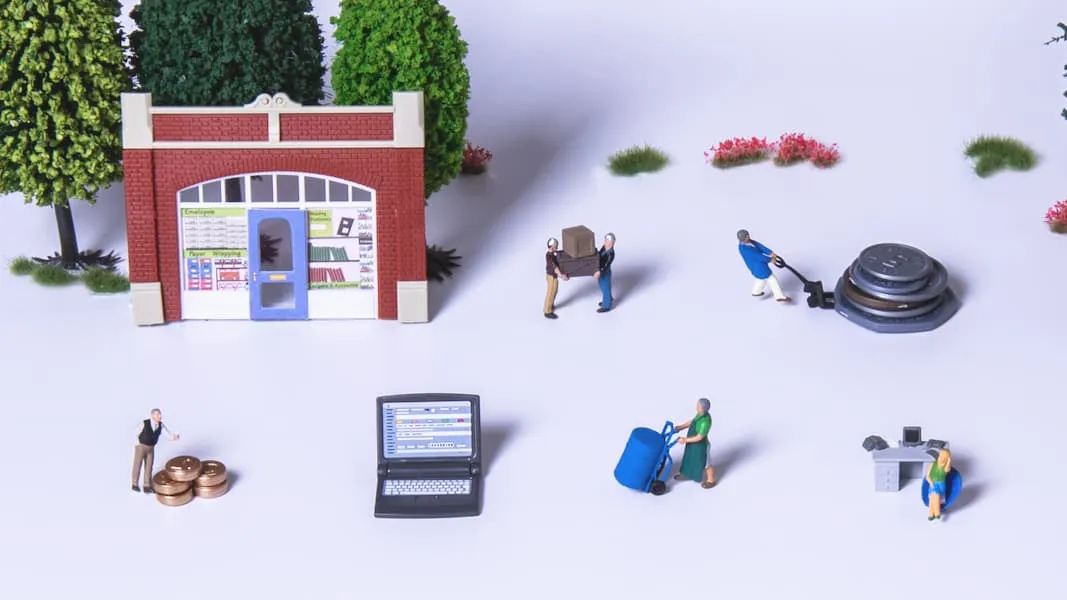Can't pay? Won't pay? How to get overdue customers to settle up
5
min read
Can't pay? Won't pay? How to get overdue customers to settle up





Cash flow is the life blood of your business. Yet according to cloud accounting firm Xero, the average UK small business is owed £24,841 at any given time. So, how do you help your late payers settle up and keep your cash flow on track?
Have a credit control process
The best way to avoid late payments is to not have late payers. That might sound flippant, but it’s the truth. Having a sturdy credit control process that helps your customers pay on time is best way to stave off late payment.
A good credit control process includes:
- A way to understand how your customers like to make payments, and what that means for your invoicing process
- Credit checks on any new large customers
- The details of your payment terms and bank details on your invoices
- A way to invoice promptly
- A disincentive for your customers to pay by cheque – which can be slow
- A way for your customers to pay with direct debit – in advance, or at the point of purchase
- An action plan for when invoices aren't paid
- Clearl roles for who does what in your credit control process. For example, when will the sales team handle the late payment and when will the finance team step in?
Flexibility is key
Your customers might have different approaches to making payments, so your credit control process needs reflect that and be flexible enough to cope with this.
Some clients might need expenses to be signed-off by a manager before they'll make a payment. Other might need a PO number added to the invoice. Half of your clients might pay incoices weekly, others every two weeks.
When you fully understand your customer’s processes it becomes easier to help them to pay on time. For example, you could make sure your finance team has a named contact in their payments team in case of problems. Or you can directly contact the relevant person ahead of the invoice due date, to make sure things are on track.
Invoice promptly
We used to use a local plumber who was his own worst enemy when it came to getting paid on time. For example, he wouldn't ask for payment at the time he visited, despite me offering to do a bank transfer while he was still with us. He also refused to get a card machine, such as iZettle or Square. Instead, his wife would issue handwritten invoices, which he would hand deliver in the evening around a week or two after he finished a job. Then, around two weeks after delivering the invoices, he'd start chasing any late payments by text. I suspect he was owed a large amount of money.
This is an extreme example, but many small businesses work in a similar way. Contrast this with our new plumber, who agrees the price before the work is done, then asks me politely me to do a bank transfer before leaving the premises.
The longer you leave it to invoice a customer, the less chance they'll remember the great work you did and how they valued your service. As a result, the bigger the gap between the work and your invoice, the more likely they are to then dispute your invoice or just forget about paying it.

Use cloud-based tools
No matter the size of your company, there are cloud-based tools which can help you automate your payments process. Most online accounting platforms such as Xero, Quickbooks and Freeagent have an invoice reminder feature. In Xero you can set up automated emails reminding customers that an invoice is nearly due to be paid, as well as automatic reminders if they haven’t paid on time.
If you find clients ignore reminder emails, cloud-based credit control tool Chaser can automatically follow-up on multiple invoices in the same message, even mimicking the look and feel of your own emails. These small touches mean you have more chance of getting your invoices paid.
Don’t forget the human touch
Emails chasing for payment can be easily ignored. With a repeat late payer it might be best to pick up the phone and have a conversation. By doing so, you can explain how their late payment is impacting your small business, and they may pay up sooner.
Keep talking
When it comes to late payers the key is to keep an open dialogue going. Your ultimate goal is to get them to settle up, even if it won't be as quickly as you'd like. This means you may need to give them flexible ways to pay the bill.
For example, can they pay with a credit card? Can they spread the cost over several installments? Can they settle with you through services your business needs?
The legal route
Launching legal proceedings shouldn't be taken lightly. The last thing you want to do is erode the money owed to you by getting solicitors involved. However, the government in the UK has a Money Claims Online service for sole traders or small businesses owed less than £100,000.
If everything else has failed, this could be a low-cost starting point for getting back what your owed. Good luck.


How to use payroll loans for small businesses

Business Loans comparison: High Street Banks vs. Alternative Lenders
Comparing the pros and cons of getting a business loan from traditional lenders and alternative finance providers, including how they differ in application processes, speed of funding, rates and flexibility.

Working capital ratio
Discussing the importance of calculating your company’s working capital ratio, what it represents and how to improve the ratio.








